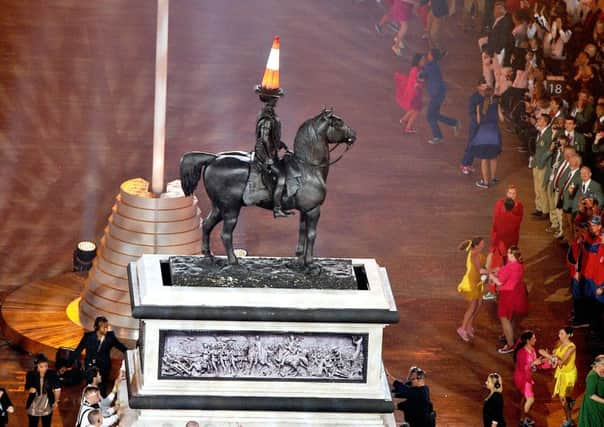Martyn McLaughlin: Glasgow's golden summer of 2014 leaves empty legacy


Ten years ago this month, a delegation from Glasgow popped the champagne corks in Sri Lanka after their slick and professional bid to stage the 20th edition of the Commonwealth Games ended in triumph. Their shrewd campaign convinced a family of nations that Scotland’s biggest city would be a fitting stage for some of the world’s most gifted athletes.
But amid the fanfare, the then deputy first minister Nicola Sturgeon issued a gentle reminder that the greatest beneficiary would be ordinary Scots. “It’s about more than hosting a two-week sporting festival,” she said. “It offers us the chance to make real improvements to people’s lives, to raise our sights as a nation.”
Advertisement
Hide AdAdvertisement
Hide AdThat heady evening saw Team Scotland cross a starting line as well as a finishing line. The task ahead was to ensure Glasgow stayed true to its promises. As Ms Sturgeon hinted, a feel-good factor could not be the only post-devolution dividend. The Games presented a golden chance to affect lasting change. It was not just the champagne talking. Everyone in Colombo believed that.
A decade on from that evening, and nearly three-and-a-half years after a rousing Hampden rendition of Auld Lang Syne brought the curtain down on Glasgow 2014, the work to assess the exact nature of the event’s bequeathal continues. A slew of academic analysis is underway and it will be another two years before the Scottish Government publishes its fifth and final Legacy Evaluation report. The truth is, it need not bother.
The Games Legacy, a phrase articulated more often than it is understood, is not measured in terms of shiny stadia or new housing. Those are the direct consequences of a vast investment of £543m, some £148m of which was set aside for that express purpose. If I spend some of my wages at Sainsbury’s, it is not a legacy. It is a food shop.
As Ms Sturgeon well knew, the only endowment of Glasgow 2014 that mattered was its ability to change entrenched behaviours and encourage more people to live active lifestyles. And on that front, it has been a dismal failure.
A new report by Holyrood’s health and sport committee makes clear that for all the hoopla of that summer three years ago, there is “no current evidence of an active legacy from the 2014 Games.” For anyone with a keen interest in the societal impact of multi-sport events, such news is akin to learning that a one legged duck swims in circles.
Even before the Games got underway, the Scottish Government knew fine well there was no conclusive link between major sporting events and participation levels. Most analysis was piecemeal and unweighted. Those studies with a degree of authority had unwelcome conclusions - in Manchester and Melbourne, which hosted the Games in 2002 and 2006, the numbers of people taking part in sport actually fell.
The Glasgow contingent thought they could buck such trends. It was not the result of hubris, but a quiet confidence and above all, faith in a policy of focusing capital investment in the most deprived areas of the city. It was a well intentioned idea, but a misplaced one.
The Holyrood report does not go into detail about how participation levels have fared since the Games, but if you delve into the regional datasets which make up the annual Scottish Household Survey reports, you can discover the disquieting findings first-hand.
Advertisement
Hide AdAdvertisement
Hide AdThe most recent study found that in Glasgow itself, some 73 per cent people said they had participated in a sporting activity in the last four weeks. Not only is that down on the national average of 79 per cent, it is the second successive year that participation levels in the city have dropped, and the lowest rate for seven years.
Dig deeper into the statistics, and the evidence supporting the case that the Commonwealth Games have failed those who needed its help the most becomes unanswerable. The 2014 survey found that among those Glaswegians without a qualification to their name, some 58 per cent had taken part in a sporting activity, including walking, in the past month.
Fast forward to the present, and the percentage stands at a meagre 47 per cent - and if you take walking out of the equation, it nosedives to just 17 per cent.
Another reliable source, the Scottish Health Survey, even pinpoints the same problems are hampering children. While more than two thirds (68 per cent) of youngsters played a sport in the week prior to being interviewed last year, it is part of a downward trend - the figure stood at 73 per cent in 2009.
Even worse, the participation inequality gap is wider among children than it is adults; 80 per cent of youngsters in the least deprived areas of Scotland played a sport in the week before the survey. Switch the sample over to the most deprived group, and the rate falls to 57 per cent.
Such ignominious figures ought to silence those who continue to espouse vague, proclamatory praise of Glasgow 2014’s catalytic qualities. It delivered an entertaining and galvanising eleven days during which Team Scotland excelled and the nation had ample reason to rejoice. But the balloons have long been popped and the champagne is flat.
In the aftermath, the old scourges are as resistant as ever, and at a time when local authority budgets are being scythed and net spending on sport-related services is falling, lasting change seems further off than ever. It was a hell of a party, but no more than that.